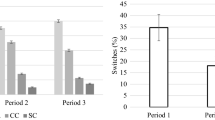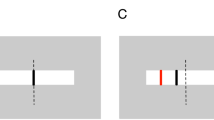Abstract
Automated systems changed the role of the human operator from active controller to supervisor of automated system. This new role comes with several human factors issues, as monitoring inefficiency. Some authors showed that it is possible to mitigate this monitoring performance drop using adaptive automation. Here, we assessed the consequences of a return to manual control with four different levels of automation reliability on eighty students. We compared the effect of the introduction of two manual sessions to exclusively automated sessions (total duration 90 min) using the MATB-II (i.e., intermittent vs permanent automation). Results showed that participants spend more time looking at the automated task in the 0% level reliability compared to 100% level of reliability over the time whatever the automation type. Manuals sessions in intermittent automation group had an impact on the time spend looking at the automated monitoring task.
Access this chapter
Tax calculation will be finalised at checkout
Purchases are for personal use only
Similar content being viewed by others
References
Onnasch, L., Wickens, C.D., Li, H., Manzey, D.: Human performance consequences of stages and levels of automation: an integrated meta-analysis. Hum. Factors 56, 476–488 (2014). https://doi.org/10.1177/0018720813501549
Metzger, U., Parasuraman, R.: The role of the air traffic controller in future air traffic management: an empirical study of active control versus passive monitoring. Hum. Factors 43, 519–528 (2001). https://doi.org/10.1518/001872001775870421
Parasuraman, R., Manzey, D.H.: Complacency and bias in human use of automation: an attentional integration. Hum. Factors 52, 381–410 (2010)
Kaber, D.B., Endsley, M.R.: The effects of level of automation and adaptive automation on human performance, situation awareness and workload in a dynamic control task. Theor. Issues Ergon. Sci. 5, 113–153 (2004)
Parasuraman, R., Molloy, R., Singh, I.L.: Performance consequences of automation-induced 'complacency'. Int. J. Aviat. Psychol. 3, 1–23 (1993)
Onnasch, L.: Crossing the boundaries of automation—function allocation and reliability. Int. J. Hum Comput Stud. 76, 12–21 (2015)
Bagheri, N., Jamieson, G.A.: Considering subjective trust and monitoring behavior in assessing automation-induced “complacency.” Hum. Perform. Situat. Awareness Automat.: Curr. Res. Trends. 54–59 (2004)
Mouloua, M., Parasuraman, R., Molloy, R.: Monitoring automation failures: effects of single and multi-adaptive function allocation. In: Proceedings of the Human Factors and Ergonomics Society Annual Meeting, pp. 1–5. SAGE Publications, Los Angeles (1993)
Parasuraman, R., Mouloua, M., Molloy, R.: Effects of adaptive task allocation on monitoring of automated systems. Hum. Factors 38, 665–679 (1996)
Santiago-Espada, Y., Myer, R.R., Latorella, K.A., Comstock Jr, J.R.: The multi-attribute task battery ii (matb-ii) software for human performance and workload research: a user’s guide (2011)
Cegarra, J., Valery, B., Avril, E., Calmettes, C., Navarro, J.: OpenMATB: a multi-attribute task battery promoting task customization, software extensibility and experiment replicability (in press)
Hart, S.G., Staveland, L.E.: Development of NASA-TLX (task load index): results of empirical and theoretical research. In: Advances in Psychology, pp. 139–183. Elsevier (1988)
Lee, J.D., Moray, N.: Trust, self-confidence, and operators’ adaptation to automation. Int. J. Hum Comput Stud. 40, 153–184 (1994)
Lee, J.D., See, K.A.: Trust in automation: designing for appropriate reliance. Hum. Factors 46, 50–80 (2004)
Acknowledgments
This study was supported by ANR (ANR-16-CE26-0017) with the Smart Planning Project.
Author information
Authors and Affiliations
Corresponding author
Editor information
Editors and Affiliations
Rights and permissions
Copyright information
© 2020 The Editor(s) (if applicable) and The Author(s), under exclusive license to Springer Nature Switzerland AG
About this paper
Cite this paper
Avril, E., Navarro, J., Wioland, L., Cegarra, J. (2020). Return to Manual Control After Monitoring Automated Systems: Effects of Different Levels of Reliability. In: Rebelo, F., Soares, M. (eds) Advances in Ergonomics in Design. AHFE 2020. Advances in Intelligent Systems and Computing, vol 1203. Springer, Cham. https://doi.org/10.1007/978-3-030-51038-1_44
Download citation
DOI: https://doi.org/10.1007/978-3-030-51038-1_44
Published:
Publisher Name: Springer, Cham
Print ISBN: 978-3-030-51037-4
Online ISBN: 978-3-030-51038-1
eBook Packages: EngineeringEngineering (R0)




